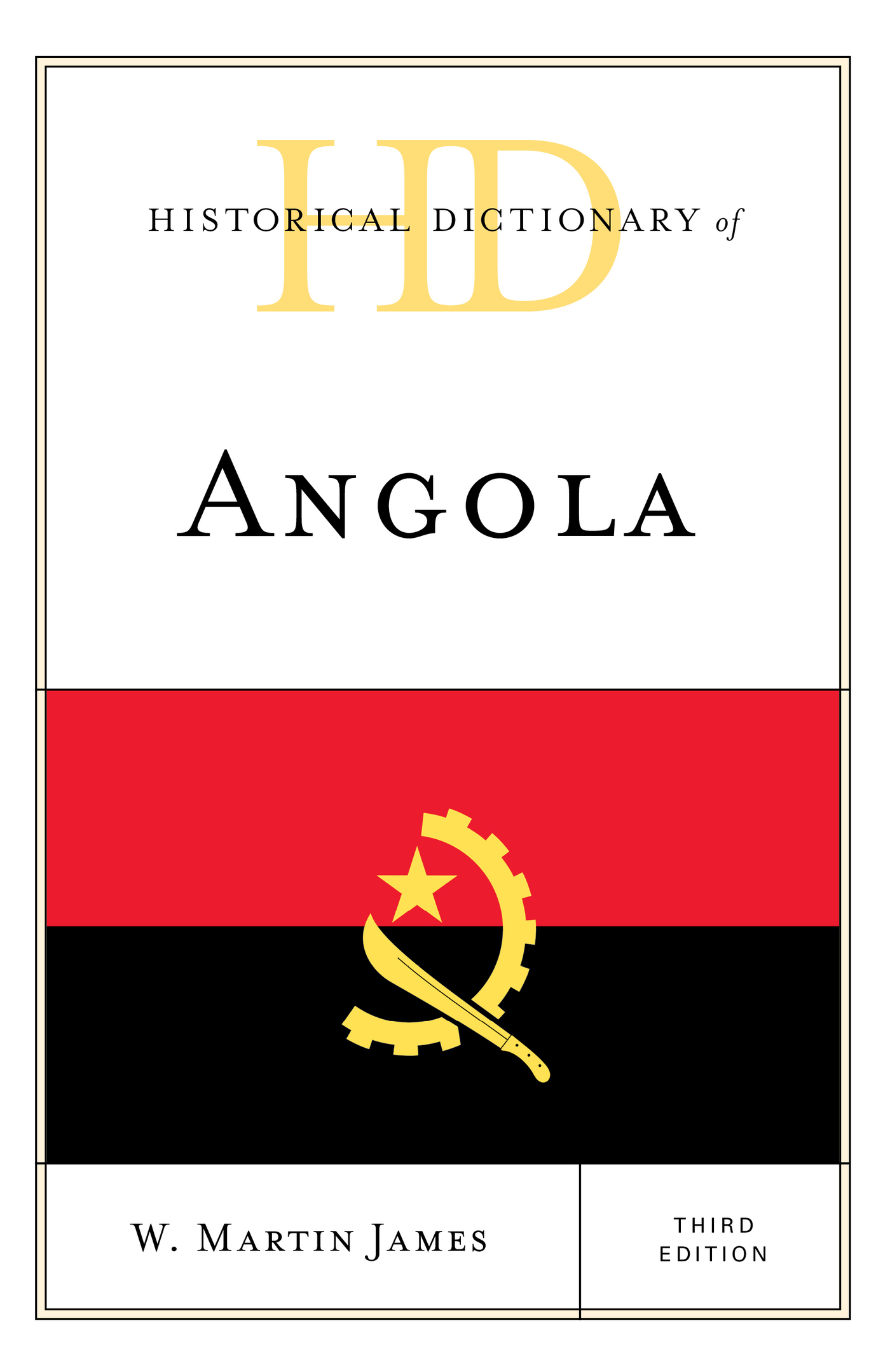The historical dictionaries present essential information on a broad range of subjects, including American and world history, art, business, cities, countries, cultures, customs, film, global conflicts, international relations, literature, music, philosophy, religion, sports, and theater. Written by experts, all contain highly informative introductory essays of the topic and detailed chronologies that, in some cases, cover vast historical time periods but still manage to heavily feature more recent events.
Brief AZ entries describe the main people, events, politics, social issues, institutions, and policies that make the topic unique, and entries are cross-referenced for ease of browsing. Extensive bibliographies are divided into several general subject areas, providing excellent access points for students, researchers, and anyone wanting to know more. Additionally, maps, photographs, and appendixes of supplemental information aid high school and college students doing term papers or introductory research projects. In short, the historical dictionaries are the perfect starting point for anyone looking to research in these fields.
HISTORICAL DICTIONARIES OF AFRICA
Jon Woronoff, Series Editor
Senegal, Second Edition, by Andrew F. Clark and Lucie Colvin Phillips. 1994.
Comoro Islands, by Martin Ottenheimer and Harriet Ottenheimer. 1994.
Uganda, by M. Louise Pirouet. 1995.
Cte dIvoire (The Ivory Coast), Second Edition, by Robert J. Mundt. 1995.
Togo, Third Edition, by Samuel Decalo. 1996.
Tanzania, Second Edition, by Thomas P. Ofcansky and Rodger Yeager. 1997.
Chad, Third Edition, by Samuel Decalo. 1997.
Equatorial Guinea, Third Edition, by Max Liniger-Goumaz. 2000.
South Africa, Second Edition, by Christopher Saunders and Nicholas Southey. 2000.
Swaziland, Second Edition, by Alan R. Booth. 2000.
Djibouti, by Daoud A. Alwan and Yohanis Mibrathu. 2000.
Liberia, Second Edition, by D. Elwood Dunn, Amos J. Beyan, and Carl Patrick Burrowes. 2001.
Zimbabwe, Third Edition, by Steven C. Rubert and R. Kent Rasmussen. 2001.
Somalia, Second Edition, by Mohamed Haji Mukhtar. 2002.
Mozambique, Second Edition, by Mario Azevedo, Emmanuel Nnadozie, and Tom Mbuia Joo. 2003.
Western Sahara, Third Edition, by Anthony G. Pazzanita. 2005.
Madagascar, Second Edition, by Philip M. Allen and Maureen Covell. 2005.
Sierra Leone, New Edition, by C. Magbaily Fyle. 2005.
Burundi, Third Edition, by Ellen K. Eggers. 2007.
Republic of Cape Verde, Fourth Edition, by Richard A. Lobban Jr. and Paul Khalil Saucier. 2007.
Zambia, Third Edition, by David J. Simon, James R. Pletcher, and Brian V. Siegel. 2008.
Mali, Fourth Edition, by Pascal James Imperato, Gavin H. Imperato, and Austin C. Imperato. 2008.
Botswana, Fourth Edition, by Fred Morton, Jeff Ramsay, and Part Themba Mgadla. 2008.
Mauritania, Third Edition, by Anthony G. Pazzanita. 2009.
Nigeria, by Toyin Falola and Ann Genova. 2009.
Republic of Cameroon, Fourth Edition, by Mark Dike DeLancey, Rebecca Mbuh, and Mark W. DeLancey. 2010.
Eritrea, Second Edition, by Dan Connell and Tom Killion. 2011.
Malawi, Fourth Edition, by Owen J. M. Kalinga. 2012.
Niger, Fourth Edition, by Abdourahmane Idrissa and Samuel Decalo. 2012.
Republic of the Congo, Fourth Edition, by John F. Clark and Samuel Decalo. 2012.
Namibia, Second Edition, by Victor L. Tonchi, William A. Lindeke, and John J. Grotpeter. 2012.
Benin, Fourth Edition, by Mathurin C. Houngnikpo and Samuel Decalo. 2013.
Burkina Faso, Third Edition, by Lawrence Rupley, Lamissa Bangali, and Boureima Diamitani. 2013.
Sudan, Fourth Edition, by Robert S. Kramer, Richard A. Lobban Jr., and Carolyn Fluehr-Lobban. 2013.
Ethiopia, Second Edition, by David H. Shinn and Thomas P. Ofcansky. 2013.
Egypt, Fourth Edition, by Arthur Goldschmidt Jr. 2013.
Lesotho, Second Edition, by Scott Rosenberg and Richard F. Weisfelder. 2013.
Republic of Guinea-Bissau, Fourth Edition, by Peter Karibe Mendy and Richard A. Lobban Jr. 2013.
Guinea, Fifth Edition, by Mohamed Saliou Camara, Thomas E. OToole, and Janice E. Baker. 2013.
Ghana, Fourth Edition, by David Owusu-Ansah. 2014.
Libya, Fifth Edition, by Ronald Bruce St John. 2014.
Kenya, Third Edition, by Robert M. Maxon and Thomas P. Ofcansky. 2014.
Algeria, Fourth Edition, by Phillip C. Naylor. 2015.
Rwanda, Second Edition, by Aimable Twagilamana. 2016.
The Gambia, Fifth Edition, by David Perfect. 2016.
Central African Republic, New Edition, by Richard Bradshaw and Juan Fandos-Rius. 2016.
Morocco, Third Edition, by Aomar Boum and Thomas K. Park. 2016.
Democratic Republic of the Congo, Fourth Edition, by Emizet Franois Kisangani. 2016.
Tunisia, Third Edition, by Kenneth J. Perkins. 2016.
Gabon, Fourth Edition, by Douglas A. Yates, 2018.
Angola, Third Edition, by W. Martin James. 2018.
Historical Dictionary of Angola
Third Edition
W. Martin James
ROWMAN & LITTLEFIELD
Lanham Boulder New York Toronto Plymouth, UK
Published by Rowman & Littlefield
An imprint of The Rowman & Littlefield Publishing Group, Inc.
4501 Forbes Boulevard, Suite 200, Lanham, Maryland 20706
http://www.rowman.com
Unit A, Whitacre Mews, 26-34 Stannary Street, London SE11 4AB
Copyright 2018 by W. Martin James
All rights reserved. No part of this book may be reproduced in any form or by any electronic or mechanical means, including information storage and retrieval systems, without written permission from the publisher, except by a reviewer who may quote passages in a review.
British Library Cataloguing in Publication Information Available
Library of Congress Cataloging-in-Publication Data
Names: James, W. Martin, author.
Title: Historical dictionary of Angola / W. Martin James.
Description: Third edition. | Lanham, Maryland : Rowman & Littlefield, 2018. | Series: Historical dictionaries of Africa
Identifiers: LCCN 2017048642 (print) | LCCN 2017050141 (ebook) | ISBN 9781538111239 (electronic) | ISBN 9781538111222 (hardcover : alk. paper)
Subjects: LCSH: AngolaHistoryEncyclopedias.
Classification: LCC DT1264 (ebook) | LCC DT1264 .J36 2018 (print) | DDC 967.3/003dc23
LC record available at https://lccn.loc.gov/2017048642
 The paper used in this publication meets the minimum requirements of American National Standard for Information Sciences Permanence of Paper for Printed Library Materials, ANSI/NISO Z39.48-1992.
The paper used in this publication meets the minimum requirements of American National Standard for Information Sciences Permanence of Paper for Printed Library Materials, ANSI/NISO Z39.48-1992.
Printed in the United States of America
Editors Foreword
Angola is one of Africas larger and certainly richer countries, although it is not certain that has done it much good. It was discovered, as the term goes, back in 1484 by the Portuguese, who held on to it for almost five centuries, until the country finally become independent in 1975, thanks to the actions of three major rival liberation movements best known by their acronyms, the MPLA, FNLA, and UNITA. But this led almost immediately to a civil war from 1975 to 2002, in which the first of these came out on top and proceeded to run the new independent state under its leader, Agostinho Neto, until 1979, and then until recently under Jos Eduardo dos Santos, who was succeeded in 2017 by his handpicked successor, Joo Loureno. So it was free, but hardly democratic, and that condition may not come about until later on under its existing electoral setup. At present, it is also relatively prosperous, at least the country is, benefiting from oil and other natural resources as well as some agriculture and industry. But the prosperity is not widely spread, with those at the top rewarding themselves disproportionately and those further down taking whatever cut they can. So this is not quite a success story, but it does show some promise.

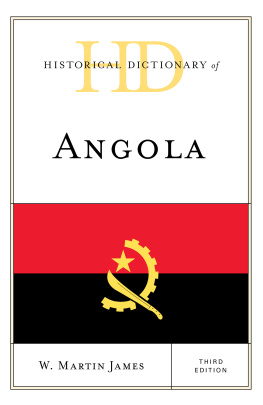
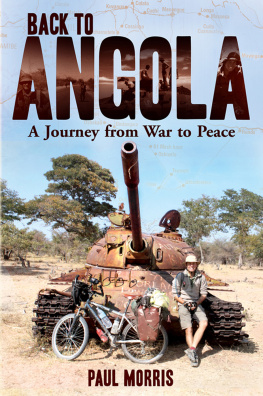
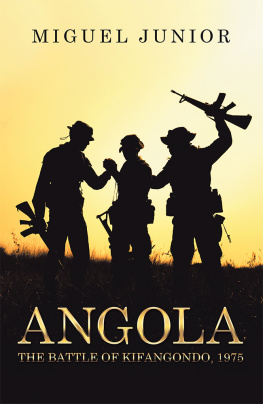
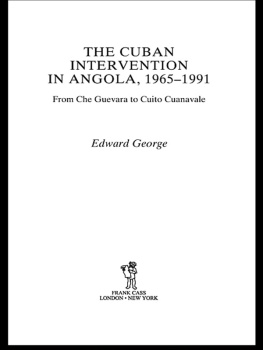
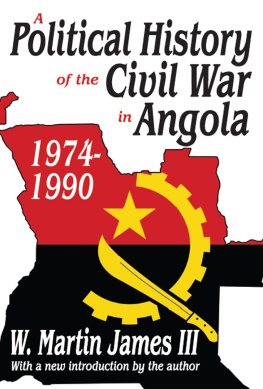
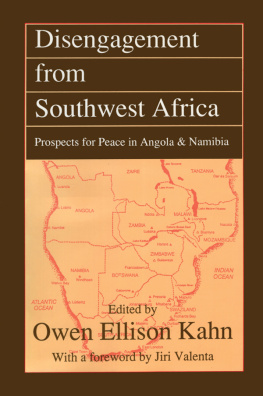

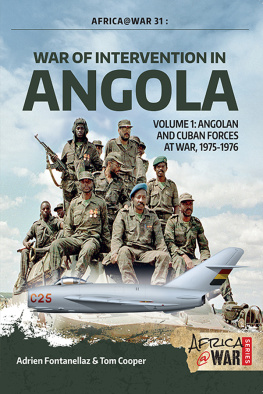
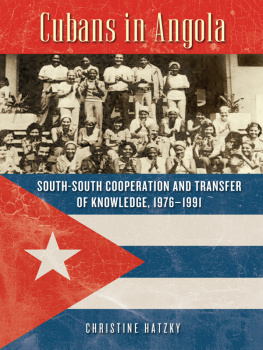


 The paper used in this publication meets the minimum requirements of American National Standard for Information Sciences Permanence of Paper for Printed Library Materials, ANSI/NISO Z39.48-1992.
The paper used in this publication meets the minimum requirements of American National Standard for Information Sciences Permanence of Paper for Printed Library Materials, ANSI/NISO Z39.48-1992.